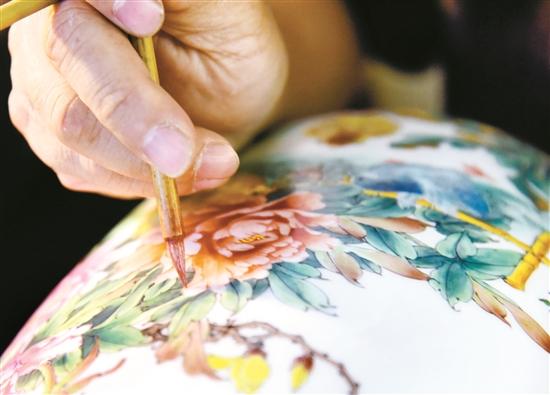

COVERED BOWL SHAPE: INGOT-SHAPED COVERED BOWL

The ingot-shaped covered bowl, inspired by ancient Chinese currency known as "yuanbao," symbolizes wealth and prosperity. This unique teaware design is celebrated for its historical and cultural significance, often given as a gift during important events like weddings to convey blessings of fortune. It not only enhances the tea experience with its aesthetic appeal but also serves as a daily reminder of abundance and success.
CUP SHAPE: FLOWER GODDESS CUP

In porcelain, the "Flower Goddess cup" holds significant cultural and aesthetic value. The name comes from its elegant design, often inspired by the beauty and grace of flowers and deities in Chinese mythology. The Flower Goddess cup symbolizes beauty, grace, and the harmonious connection between nature and art. It represents the exquisite craftsmanship of artisans and the rich heritage of traditional porcelain-making techniques.
TEAWARE PATTERN:PHOENIX

The phoenix pattern on the tea set typically symbolizes nobility, rebirth, and good fortune. In Chinese culture, the phoenix is seen as a symbol of beauty and grace, representing peace, prosperity, and renewal. Such patterns not only enhance the artistic value of the tea set but also convey wishes for a happy and prosperous life.
CRAFTSMANSHIP USED IN MAKING THE GAIWAN: FAMILLE ROSE

Famille Rose is a cherished tradition in Chinese porcelain decoration, known for its intricate craftsmanship and vivid colors. Using techniques involving multiple layers of glaze and firing, artisans apply colors like iron red, pink, and purple to create detailed patterns on porcelain surfaces. Each piece reflects meticulous carving and coloring skills, highlighting a deep understanding of color application. Beyond its artistic value, Famille Rose is a vital part of Chinese porcelain culture with rich cultural and historical significance.
MAKING PROCESS

-
Making the Clay Body: The process begins with forming the clay body, which is the unglazed porcelain base.
-
Initial Firing: The clay body is first fired at about 800°C to achieve a certain level of hardness.
-
Glazing: A layer of transparent or white glaze is applied to the clay body, which is then fired a second time at around 1200°C.
-
Painting: The painting is done on the surface of the glazed porcelain using specially formulated Famille Rose pigments. Artisans typically outline the design with ink before filling it in with color.
-
Low-Temperature Firing: The final step is a low-temperature firing at 700-800°C, which fixes the Famille Rose pigments onto the porcelain surface.
























